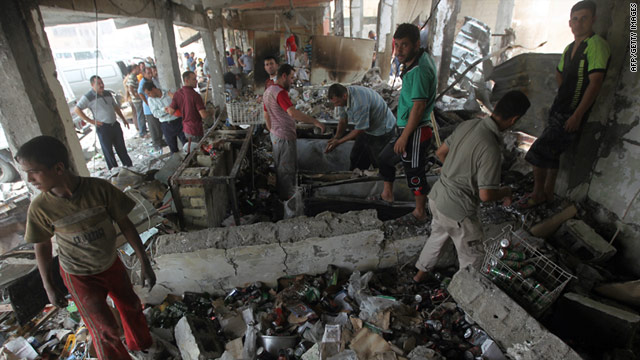By Tyler Yates
Impunity Watch Reporter, Middle East
BAGHDAD, IRAQ — The United Nations Assistance Mission for Iraq (UNAMI) and the United Nations Office of the High Commissioner of Human Rights (OHCHR) released a report on Monday that highlighted a fragile plague of human rights abuses in Iraq.
The report details how armed violence has become an everyday part of life for a large number of Iraqis, with minorities (especially members of the LGBT community), women, and children suffering disproportionately. Torture and other matters of impunity are also rampant throughout the Middle Eastern state.

According to UN and Iraqi government estimates, approximately 3,000 civilians were killed by violence in 2010. Armed insurgents and terrorist groups were the main culprits behind these attacks. The majority of the targeted civilians have been religious leaders, journalists, and medical and education professionals.
The report also notes many “silent” human rights violations. “Widespread poverty, economic stagnation, lack of opportunities, environmental degradation, and an absence of basic services…affect large sectors of the population,” it says.
Political rights, such as the freedom of expression and the right to assembly, have slightly improved from previous years, but still have many challenges.
There are significant problems with Iraq’s system of law, especially with respect to due process and fair trial rights. Defendants are frequently unaware of the charges being brought against them, have no access to lawyers, and are held longer than legally allowed without trial. The condition of detention centers has improved, but there is still a large overemphasis on using confessions to convict, which has led to an ideal environment for torture.
Women’s rights issues continue to hover on the human rights radar with instances of domestic violence, trafficking, genital mutilation, and honor crimes continually being reported.
The battle to end impunity for those who commit human rights abuses “remains a serious challenge in Iraq. Perpetrators of crimes committed over many years continue to be unaccountable.”
The report concludes by giving some suggestions for fixing the current abuses, including placing a limit on the arresting powers of the police, putting a moratorium on the death penalty, and creating and enforcing laws designed to protect individual rights.
The Iraqi response to the current state of its human rights record has been mainly aimed at the UN, and what they call its “limited role” in the involvement of the difficult nation-building process that is currently on going in Iraq. The hope is that a stronger presence in Iraq by the UN would lead to greater successes in nation building, specifically in the area of human rights.
Iraq has been closely scrutinized for its human rights record for years. In June, the UN special representative to Iraq urged, yet so far unsuccessfully, the government to ratify the Convention Against Torture and Other Cruel, Inhuman, or Degrading Treatment or Punishment. It appears that while there have been many advances made towards recognizing human rights violations the government is still facing many obstacles.
For more information, please see:
AFP — UN calls situation in Iraq ‘fragile’ — 8 Aug 2011
Aswat al-Iraq — UN should play greater role — 8 Aug 2011
CNN — Significant human rights issues noted in U.N. report on Iraq — 8 Aug 2011
Examiner — UN: Iraq plagued with numerous human rights violations — 8 Aug 2011
Jurist — Iraq human rights abuses continue: UN report — 8 Aug 2011
United Nations — Human rights in Iraq remain fragile amid armed violence, torture, and impunity — 8 Aug 2011


